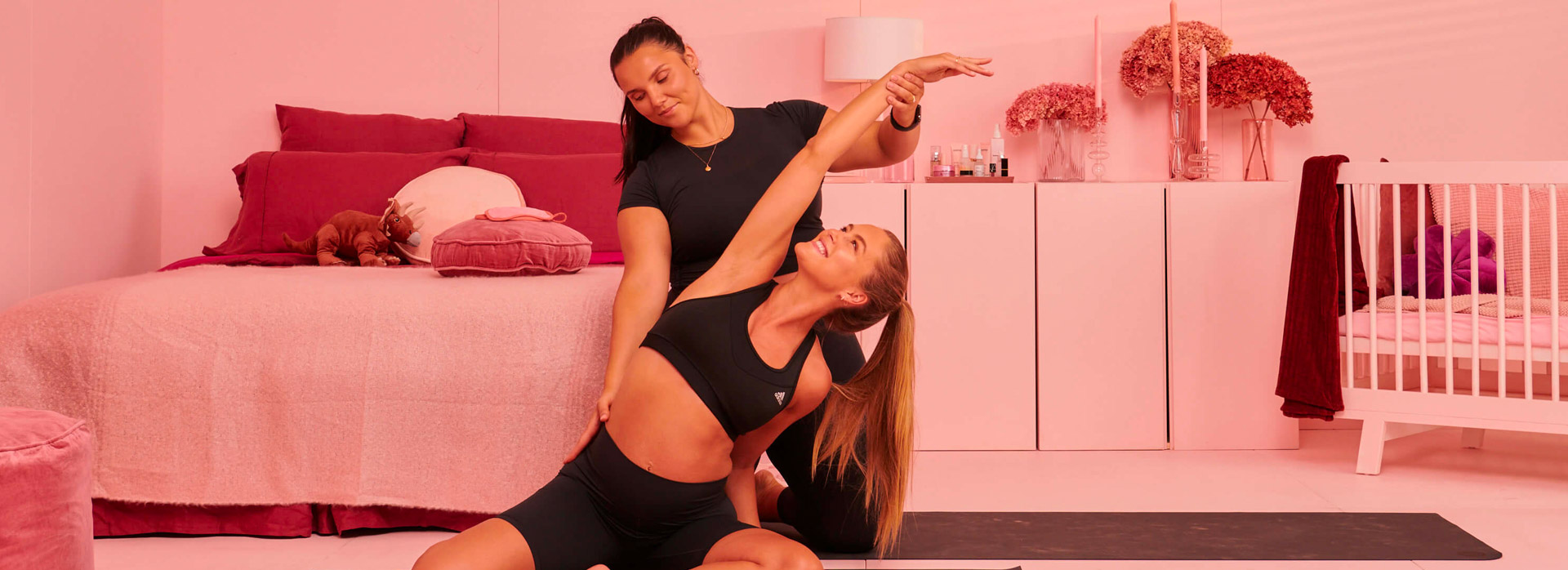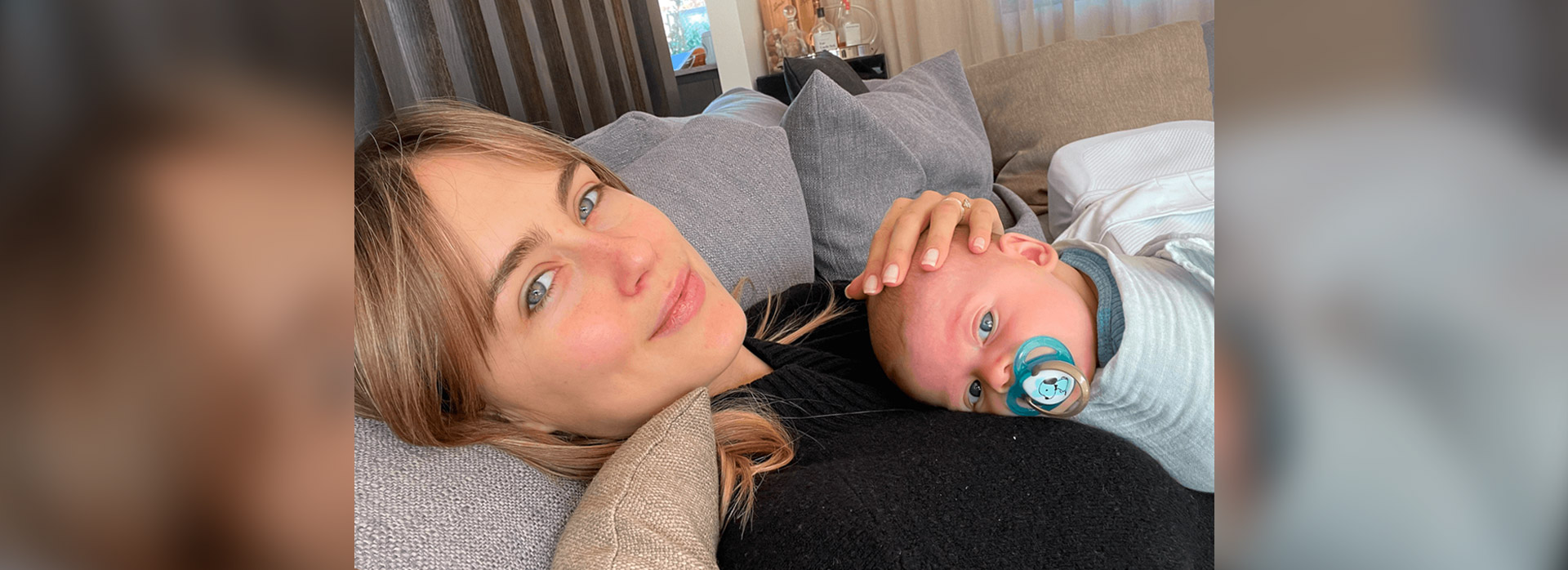10 Common Pre & Postnatal Health Questions Answered by Ash!
Is exercising during pregnancy safe?
Exercising has amazing benefits for you and your baby! The most current research from the Royal Australian New Zealand College of Obstetrics and Gynaecology (RANZCOG) states that exercise during pregnancy is not only safe, but highly recommended to improve sleep, promote muscle strength, boost your mood and energy and assist in the management of gestational diabetes and pregnancy-related aches and pains. However, the RANZCOG 2020 guidelines recommend avoiding exercise in hot climates in all trimesters, and avoiding extreme sports or sports where the risk of falling is high.
When should I start prenatal pilates?
You can start prenatal Pilates and meditations as soon as you feel comfortable. KICBUMP is designed for all stages and phases of pregnancy. Your KIC pilates instructors provide modifications along the way to help you feel confident and comfortable, and to ensure you’re getting what you need out of the session. The earlier you can start, the better! But there is no such thing as too late, and any time is a great time to begin exercising once you feel comfortable and you’ve received the clearance of your health care professional.
How often should I work out when I'm pregnant?
You should aim to be physically active on most days, preferably all days of the week. RANCOG recommends aiming to accumulate 150-300 minutes of moderate intensity physical activity each week, which averages out to about 30 minutes per day. Two strengthening exercises per week on non-consecutive days is a great goal to aim for – so long as you have clearance from your healthcare professional, and only if you feel up to it. Listen to your body and do what feels right for you!
What signs do I need to be cautious of to stop exercising?
According to the 2020 RANZCOG recommendations for exercising during pregnancy, signs to look out for include:
- Chest pain
- Unexplained shortness of breath
- Dizziness
- Feeling faint or headache
- Muscle weakness
- Calf pain, swelling or redness
- Sudden swelling of the ankles, hands or face
- Vaginal bleeding or amniotic fluid loss
- Decreased foetal movement
- Uterine contractions or pain in the lower back, pelvic area, or abdomen (potentially indicating pre-term labour)
If you experience any of these, please cease exercising immediately and seek the advice of your health care professional.
Why should I follow a prenatal program?
Following a program that has been designed by a Physiotherapist in line with evidence-based practice for exercise during pregnancy ensures that you’re not only working out safely, but also working on the things that are going to be most important for your body as you grow your tiny human. I would love it if everyone could see a Pelvic Floor Physio during their pregnancy, but I know that’s not always accessible. That’s why we created the KICBUMP program!
Is seeing a Women's Health Physiotherapist really necessary after giving birth?
Ideally, YES! Women have a check up with their GP around six weeks postpartum but they are often only able to check the external healing, and don’t assess your pelvic floor internally. For that reason, I always recommend seeking the advice of a Women’s Health Physiotherapist around four-six weeks after having your baby. If there’s one thing I urge women to prioritise, it’s this, wherever possible.
After having a baby, when should I start exercising again?
It varies from woman to woman, depending on a whole range of factors including the type of birth you had, how big your baby was, how active you were before and during pregnancy, and your core and pelvic floor strength. If you see a Women’s Health Physiotherapist postpartum, they will be able to give you tailored advice to ensure you return to exercise safely.
I know that’s not always possible though, that’s why we have included a whole range of educational content in the KICBUMP program to help you feel more confident to return to exercise. My biggest advice is to start slow, with only very gentle walking (if and when you feel up to it) and pelvic floor strengthening in the first six weeks. The KICBUMP postnatal Pilates program is designed to begin anywhere from six weeks, and is designed as a graduated exercise program, which means you start at session one, and each session builds slowly from there.
What are the biggest misconceptions around exercising during pregnancy?
I still have women come to me that have been told incorrect or outdated information. Unfortunately, I find that a lot of the advice from health professionals can still be very outdated. The most current evidence is that exercising during pregnancy is not only safe, but beneficial for both mum & bub!
Can I still lie on my back & my side during pregnancy?
We now have new research that shows you definitely should not lie on your back after the first trimester because it significantly restricts blood flow to your baby. Previously we might have said that it was fine as long as you didn’t experience any symptoms, but we now know that the blood flow can be reduced to your bub without you feeling any different at all.
In regards to laying on your side, we previously would have said to avoid laying on your left side, but we now know (thanks to new research) that there is no difference between laying on your left versus your right side, which is great news for anyone who was struggling to sleep on their right side only! However, please seek the advice of your health care professional for your individual circumstances.
Is it normal to leak when I laugh or sneeze?
Leakage, or urinary incontinence during pregnancy is common, with up to 38% of women reporting that they experience incontinence. But leakage is certainly not normal. Whether it’s leakage with laughing, sneezing and coughing, whilst exercising, or whilst rushing to the toilet, urinary incontinence is often a sign of a weak pelvic floor. If you experience leakage (both during pregnancy and postpartum), I highly recommend seeking the advice of a Pelvic Floor Physiotherapist to determine the cause of your bladder leakage, because it is NOT normal, and certainly not something you have to put up with.
References: RANZCOG Guidelines: Exercise in Pregnancy, March 2020.
Mattola et al., (2019). Is supine exercise associated with adverse maternal and fetal outcomes? A systematic review. British Journal of Sports Medicine, 2019, 1:53(2): 82-9
Jeffreys et al., (2006). Uterine blood flow during supine rest and exercise after 28 weeks gestation. BJOG: An International Journal of Obstetrics and Gynaecology, 2006, 113(11)1239-47
Cronin et al., (2019). An Individual Participant Data Meta-Analysis of Maternal Going-to-Sleep Position, Interactions with Fetal Vulnerability, and the Risk of Late Stillbirth. EClinical Medicine 10, 2019, 49-57
You might also like

- Blog
- KICBUMP
KICBUMP is a pre and postnatal Pilates program developed and guided by our qualified Pilates instructors, Christina Traychevska and Mari Yammas. Created especially for new and expectant mums, you can feel safe and comfortable knowing that each and every movement has been designed with the safety of you and your baby as the number one […]

- Blog
- KICBUMP
It’s no secret that as women, our bodies go through some pretty significant changes during pregnancy. Beyond just the physical and outward changes, there’s also a lot happening on the inside of your body both during and after pregnancy.

- Blog
- KICBUMP
A message to new mummas out there. These are things that I’m having to regularly remind myself of atm, so I thought ‘d share them with you.


